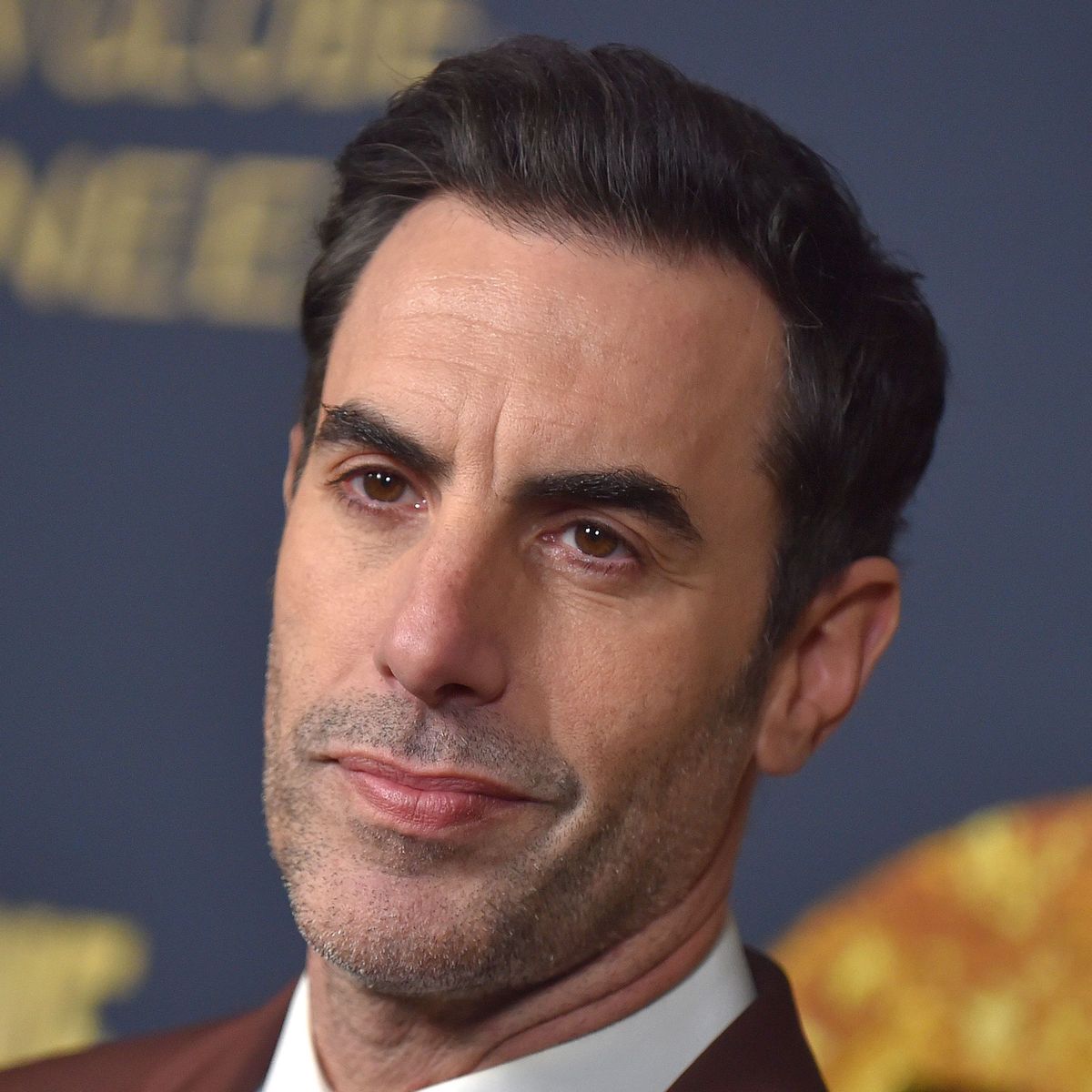Madonna has become a cultural icon, and Sacha Baron Cohen's portrayal of her in his satirical work has sparked widespread discussions about celebrity impersonation, media representation, and the boundaries of comedy. This article delves into the significance of Cohen's portrayal, its impact on popular culture, and the broader implications for both the entertainment industry and fans.
Madonna, often referred to as the "Queen of Pop," has had a lasting influence on music, fashion, and global culture. Sacha Baron Cohen, known for his provocative comedic style, brought a unique twist to this icon through his impersonation. The intersection of these two influential figures raises important questions about the nature of celebrity, parody, and public perception.
Throughout this article, we will explore the history of Madonna's career, the context behind Sacha Baron Cohen's impersonation, and the reactions it garnered. By examining the cultural and social implications of this interaction, we aim to provide a comprehensive understanding of its significance in the modern entertainment landscape.
Read also:Sisters Charity Hospital A Beacon Of Compassionate Healthcare
Table of Contents
- Madonna: A Brief Biography
- Who is Sacha Baron Cohen?
- Madonna in Satirical Comedy
- The Impact of Impersonation on Pop Culture
- Audience Reactions and Criticisms
- Media Coverage and Controversies
- Cultural Significance of the Impersonation
- Legal and Ethical Considerations
- The Future of Celebrity Parody
- Conclusion
Madonna: A Brief Biography
Early Life and Career
Madonna Louise Ciccone, born on August 16, 1958, in Bay City, Michigan, rose to fame in the early 1980s with her unique blend of pop music, provocative fashion, and groundbreaking performances. Her debut album, simply titled "Madonna," was released in 1983 and featured hits like "Holiday" and "Lucky Star." Over the years, she has reinvented herself multiple times, earning the nickname "The Queen of Reinvention." Below is a summary of her key career milestones:
| Birth Name | Madonna Louise Ciccone |
|---|---|
| Date of Birth | August 16, 1958 |
| Place of Birth | Bay City, Michigan, USA |
| Occupation | Singer, Songwriter, Actress, Author |
| Notable Albums | "Like a Virgin," "True Blue," "Ray of Light," "MDNA" |
Global Influence
Madonna's influence extends far beyond music. She has been a trailblazer in the realms of fashion, activism, and feminism. Her willingness to push boundaries has made her a symbol of empowerment for many. As one of the best-selling music artists of all time, her impact on the industry is undeniable.
Who is Sacha Baron Cohen?
Sacha Baron Cohen, born on October 13, 1971, in London, England, is a comedian, actor, and screenwriter renowned for his controversial and satirical characters. Known for roles such as Borat, Ali G, and Brüno, Cohen has consistently challenged societal norms through his humor. His work often provokes strong reactions, sparking debates about the role of comedy in addressing sensitive topics.
Cohen's Approach to Satire
- Uses exaggerated characters to highlight societal flaws.
- Blurs the line between fiction and reality to provoke thought.
- Focuses on issues such as racism, sexism, and political corruption.
Madonna in Satirical Comedy
Sacha Baron Cohen's impersonation of Madonna in his early work, particularly during the Ali G era, brought a fresh perspective to celebrity parody. By exaggerating certain aspects of her persona, Cohen questioned the media's portrayal of pop icons and the public's obsession with fame. This section explores the nuances of his approach and its reception.
Ali G and Madonna
In one of his most memorable skits, Cohen, as Ali G, interviewed Madonna in a manner that simultaneously celebrated and mocked her celebrity status. The interaction highlighted the absurdity of media interviews while also paying homage to her influence in the music industry.
The Impact of Impersonation on Pop Culture
The portrayal of Madonna by Sacha Baron Cohen resonated deeply within pop culture, sparking discussions about the nature of celebrity impersonation. It challenged audiences to reconsider their perceptions of famous figures and the media's role in shaping these perceptions.
Read also:New Vision Coop A Gateway To Sustainable And Collaborative Growth
Changing Perceptions
Through his comedic lens, Cohen encouraged viewers to think critically about the images celebrities present to the world. This impersonation contributed to a broader conversation about authenticity and the pressures faced by public figures.
Audience Reactions and Criticisms
Reactions to Cohen's impersonation of Madonna were mixed. While some praised his ability to highlight the absurdities of celebrity culture, others criticized what they perceived as a lack of respect for the artist. These differing viewpoints underscore the complexity of satirical comedy.
Key Criticisms
- Concerns about the accuracy and fairness of the portrayal.
- Debates over the boundaries of parody and its potential to offend.
- Questions about the impact on Madonna's legacy and public image.
Media Coverage and Controversies
The media played a significant role in amplifying the impact of Sacha Baron Cohen's impersonation of Madonna. Extensive coverage of the skits and interviews brought the issue to a global audience, generating both praise and criticism. This section examines the media's role in shaping public opinion.
Controversial Moments
Several moments from Cohen's performances, particularly those involving Madonna, became the subject of intense media scrutiny. These instances often highlighted the fine line between humor and offense in the realm of celebrity parody.
Cultural Significance of the Impersonation
At its core, Sacha Baron Cohen's portrayal of Madonna reflects broader cultural shifts in how society views and interacts with celebrities. By examining these dynamics, we gain insight into the evolving relationship between fans, media, and public figures.
Shifting Dynamics
The impersonation serves as a microcosm of larger trends in entertainment, where the lines between reality and fiction continue to blur. This has implications for how celebrities are perceived and how they navigate their public personas.
Legal and Ethical Considerations
While parody is protected under freedom of speech in many countries, it raises important legal and ethical questions. This section explores the potential implications of celebrity impersonation and the responsibilities of comedians in this context.
Key Legal Issues
- Right to privacy and image protection.
- Copyright and intellectual property concerns.
- Balance between artistic expression and potential harm.
The Future of Celebrity Parody
As the entertainment landscape continues to evolve, the role of parody in shaping public discourse remains significant. Sacha Baron Cohen's work with Madonna serves as a case study for understanding the future of this genre and its potential impact on society.
Trends and Predictions
Advancements in technology and changes in media consumption patterns will likely influence the way parody is created and consumed. Understanding these trends is crucial for navigating the complexities of modern entertainment.
Conclusion
In conclusion, Sacha Baron Cohen's impersonation of Madonna represents a fascinating intersection of comedy, culture, and celebrity. By examining the nuances of this interaction, we gain valuable insights into the broader implications of parody in the entertainment industry. We encourage readers to share their thoughts and engage in further discussions about these topics. Additionally, exploring related articles on our site can provide a deeper understanding of the themes discussed here.


